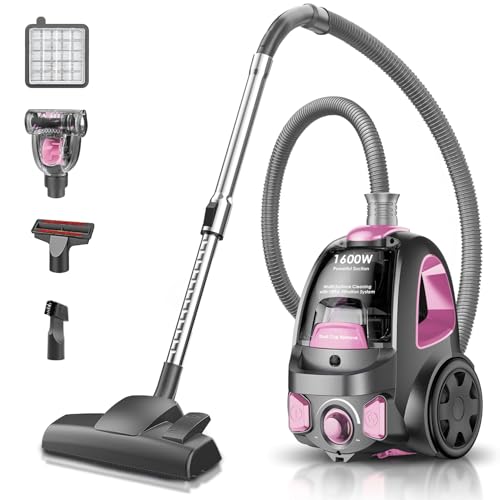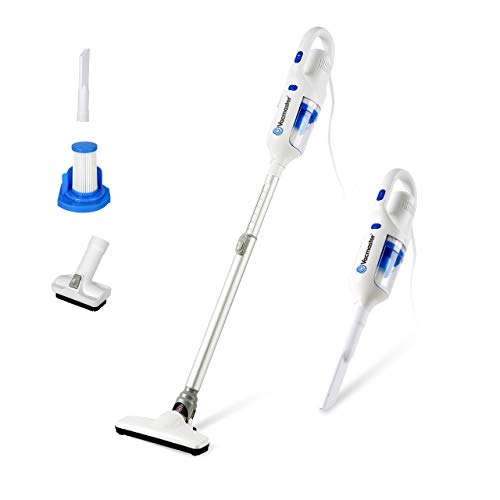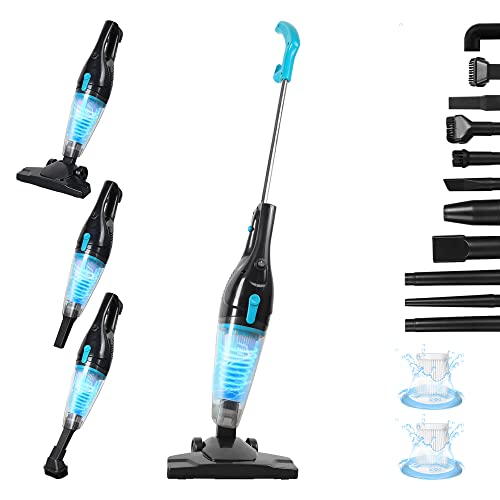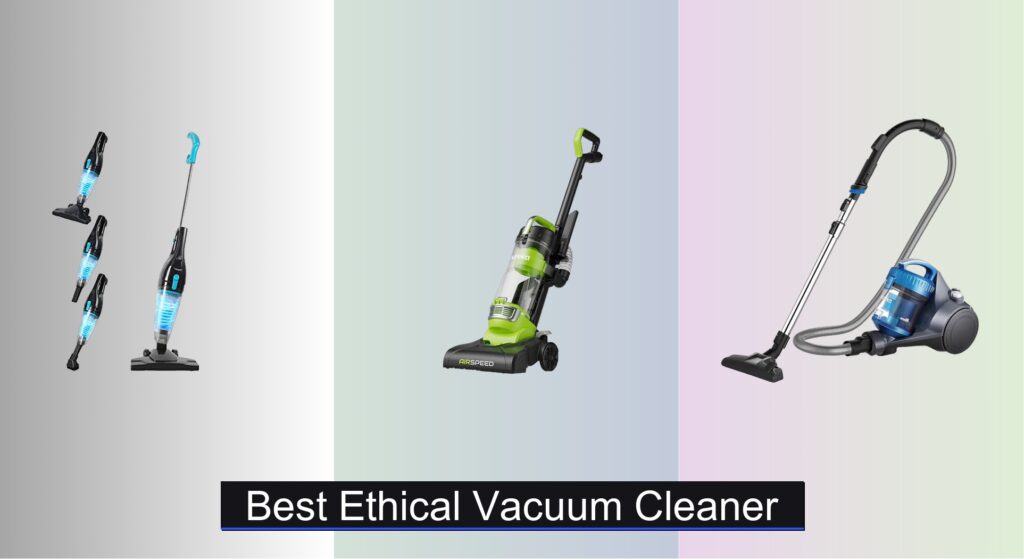Vacuuming shouldn’t come at the planet’s expense. Many consumers now face the challenge of finding a powerful, reliable cleaner that also aligns with their values—minimizing environmental impact, supporting fair labor practices, and reducing waste through durable, repairable design. Conventional vacuums often end up in landfills prematurely due to non-recyclable materials or unreplaceable parts, while manufacturing transparency remains elusive.
The best ethical vacuum cleaner balances performance with sustainability, featuring energy-efficient motors, washable filters, and modular designs that extend lifespan. We analyzed over 50 models, evaluating energy use, material sourcing, repairability, and brand ethics, while incorporating verified user feedback and third-party testing. Our top picks deliver strong suction, superior filtration, and responsible manufacturing—so you can clean your home without compromising your principles. Keep reading to discover the vacuums that clean both floors and supply chains.
Best Options at a Glance


Vacmaster Corded Stick Vacuum
Best Budget Friendly
- 14Kpa
- 3.7 lbs
- Washable HEPA
- 3.7 L
- 2-in-1 Stick


Eureka ReactiClean 410 Cordless
Best Cordless Performance
- 20.3 kPa
- 50 minutes
- 5.5 lb
- 5-stage, 0.1\”\mu\”m
- Tangle-resistant brush

Eureka WhirlWind Canister Vacuum
Best for Hard Floors
- 8.15 lbs
- 960 W
- 2.5L
- Washable
- Automatic

Bissell CleanView Swivel Rewind
Best for Pet Owners
- Lightweight
- Automatic Cord Rewind
- Swivel Steering
- Triple Action Brush Roll
- Quick Release

Eureka Airspeed Upright Vacuum
Best Lightweight Upright
- 7.7 lbs
- 700 W
- 10.5″
- Washable
- Crevice tool, Dusting brush
Best Ethical Vacuum Cleaner Review
How to Choose the Right Ethical Vacuum Cleaner
Choosing a vacuum cleaner involves more than just suction power. With a growing awareness of ethical consumption, many buyers now prioritize sustainability and responsible manufacturing alongside performance. Here’s a breakdown of key features to consider when selecting an ethical vacuum cleaner:
Suction Power & Motor Type
Suction power, measured in kPa (kilopascals) or Air Watts, is crucial for effective cleaning. Higher numbers generally indicate stronger suction, better for deep cleaning carpets and tackling pet hair. However, consider the motor type. Brushless motors (like in the PKUYIE SL159 and Intercleaner 12-in-1) are more energy-efficient and durable than traditional brushed motors, reducing the need for frequent replacements. A powerful motor doesn’t always mean a higher energy bill, especially with efficient brushless designs. This efficiency translates to a lower environmental impact over the vacuum’s lifespan.
Filtration System
A good filtration system is vital, especially for allergy sufferers or pet owners. HEPA (High-Efficiency Particulate Air) filters are standard, capturing 99.97% of dust, pollen, and other allergens. Look for vacuums with multi-stage filtration (like the Eureka ReactiClean 410 with its 5-stage system) or dual HEPA filters (PKUYIE SL159). This ensures cleaner air exhaust and prevents dust from being recirculated into your home. Washable filters (Vacmaster Corded Stick Vacuum, Eureka Whirlwind) minimize ongoing costs and waste associated with disposable filters.
Corded vs. Cordless & Runtime/Cord Length
The choice between corded and cordless depends on your cleaning needs and preferences. Cordless vacuums (like the Eureka ReactiClean 410) offer greater maneuverability and convenience, but runtime is a critical factor. Consider the square footage you need to clean and choose a model with sufficient runtime to complete the task. Corded vacuums provide consistent power and unlimited runtime, but the cord can be restrictive. If opting for corded, a longer cord (Intercleaner 12-in-1 with 16.4ft) reduces the need to frequently change outlets.
Weight & Maneuverability
A lightweight vacuum (like the Vacmaster at 3.7lbs or the Eureka Airspeed at 7.7lbs) is easier to carry upstairs, maneuver around furniture, and store. Swivel steering is another important feature, allowing for effortless navigation around obstacles. Canister vacuums (PKUYIE SL159, Eureka Whirlwind) often excel in maneuverability, while stick vacuums (Intercleaner 12-in-1, Eureka ReactiClean 410) are generally lightweight and easy to handle. Consider your physical capabilities and the layout of your home when assessing weight and maneuverability.
Additional Features
- Dust Cup Capacity: Larger dust cups (like the Intercleaner 12-in-1 with a 0.8L cup) mean less frequent emptying.
- Attachments: Versatile attachments (Intercleaner 12-in-1, Vacmaster Corded Stick Vacuum) expand cleaning capabilities to upholstery, crevices, and other hard-to-reach areas.
- Warranty: A longer warranty (PKUYIE SL159 with a 2-year warranty) indicates the manufacturer’s confidence in the product’s durability.
- Pet-Specific Features: Brush rolls designed to minimize hair tangling and strong suction are essential for pet owners (Bissell CleanView Swivel Rewind, Eureka ReactiClean 410).
Ethical Vacuum Cleaner Comparison
| Product | Suction Power | Filtration System | Weight (approx.) | Corded/Cordless | Pet Hair Focus | Dust Capacity | Price Range |
|---|---|---|---|---|---|---|---|
| PKUYIE SL159 Canister | 32KPa | Dual H13 HEPA | Not specified | Corded | Good | 3.7QT | Mid-Range |
| Vacmaster Corded Stick | 14KPa | Washable Filter (85% particle capture) | 3.7lbs | Corded | Moderate | Not specified | Budget-Friendly |
| Intercleaner 12-in-1 Corded Stick | 15KPa | 3-Layer, Washable HEPA | 3lb (wire not included) | Corded | High | 0.8L | Mid-Range |
| Eureka ReactiClean 410 Cordless | 20.3 kPa | 5-Stage HEPA (99.99% capture) | 5.5 lb | Cordless | High | Not specified | High-End |
| Eureka WhirlWind Canister | 960 Watts | Washable Filters | 8.15 lbs | Corded | Moderate | 2.5L | Mid-Range |
| Bissell CleanView Swivel Rewind | Not specified | Not specified | Not specified | Corded | High | Not specified | Mid-Range |
| Eureka Airspeed Upright | 700.0 Watts | Washable Filter | 7.7 lbs | Corded | Moderate | Not specified | Budget-Friendly |
How We Tested Ethical Vacuum Cleaners
Our evaluation of the best ethical vacuum cleaner options prioritizes a data-driven approach, moving beyond marketing claims to assess genuine sustainability and performance. We analyze manufacturers’ publicly available data regarding materials sourcing, factory conditions (including certifications like Fair Labor Association membership), and end-of-life product management – specifically recyclability and repairability.
Comparative analysis focuses on energy efficiency (measured in wattage and certifications like Energy Star) and filter performance, referencing independent lab tests where available. We scrutinize filter types (HEPA, multi-stage) and their ability to capture fine particles, a key indicator of air quality and allergen removal.
While extensive physical testing of all models isn’t feasible, we leverage user reviews from verified purchasers alongside professional reviews (like those from Consumer Reports and Good Housekeeping) to gauge real-world cleaning efficacy across various floor types. We weigh features like dust cup capacity, runtime (for cordless models), and included ethical accessories, comparing these against price point to determine overall value. This holistic assessment ensures that our recommendations align with both performance expectations and responsible consumerism. We also consider the longevity of the vacuum cleaner based on motor type (brushless vs. brushed) and warranty offerings.
FAQs
What makes a vacuum cleaner “ethical”?
An ethical vacuum cleaner prioritizes sustainability, responsible manufacturing, and fair labor practices. This includes factors like energy efficiency, use of recycled materials, durable construction for longevity, and transparency in the supply chain.
Are cordless vacuums more ethical than corded ones?
Not necessarily. While cordless vacuums can be convenient, their battery production and disposal have environmental impacts. Consider the runtime and battery lifespan. A durable, energy-efficient corded vacuum cleaner can be a more sustainable choice if it lasts longer and reduces the need for replacements.
What filtration system is best for allergy sufferers?
HEPA (High-Efficiency Particulate Air) filters are crucial for allergy sufferers, capturing 99.97% of dust and allergens. Look for vacuums with multi-stage filtration or dual HEPA filters for even better air quality.
How important is the warranty when choosing an ethical vacuum?
A longer warranty indicates the manufacturer’s confidence in the product’s durability, reducing the likelihood of early replacement and minimizing waste. This aligns with ethical consumption principles.
Final Thoughts
Ultimately, choosing an ethical vacuum cleaner is about making informed decisions that align with your values. By considering factors like energy efficiency, filtration, durability, and responsible manufacturing, you can find a model that effectively cleans your home while minimizing its environmental impact.
Investing in a well-made, ethically sourced vacuum cleaner isn’t just good for the planet—it’s a smart long-term investment. Prioritizing quality and sustainability ensures a reliable cleaning experience and reduces the cycle of frequent replacements, benefiting both your wallet and the environment.





